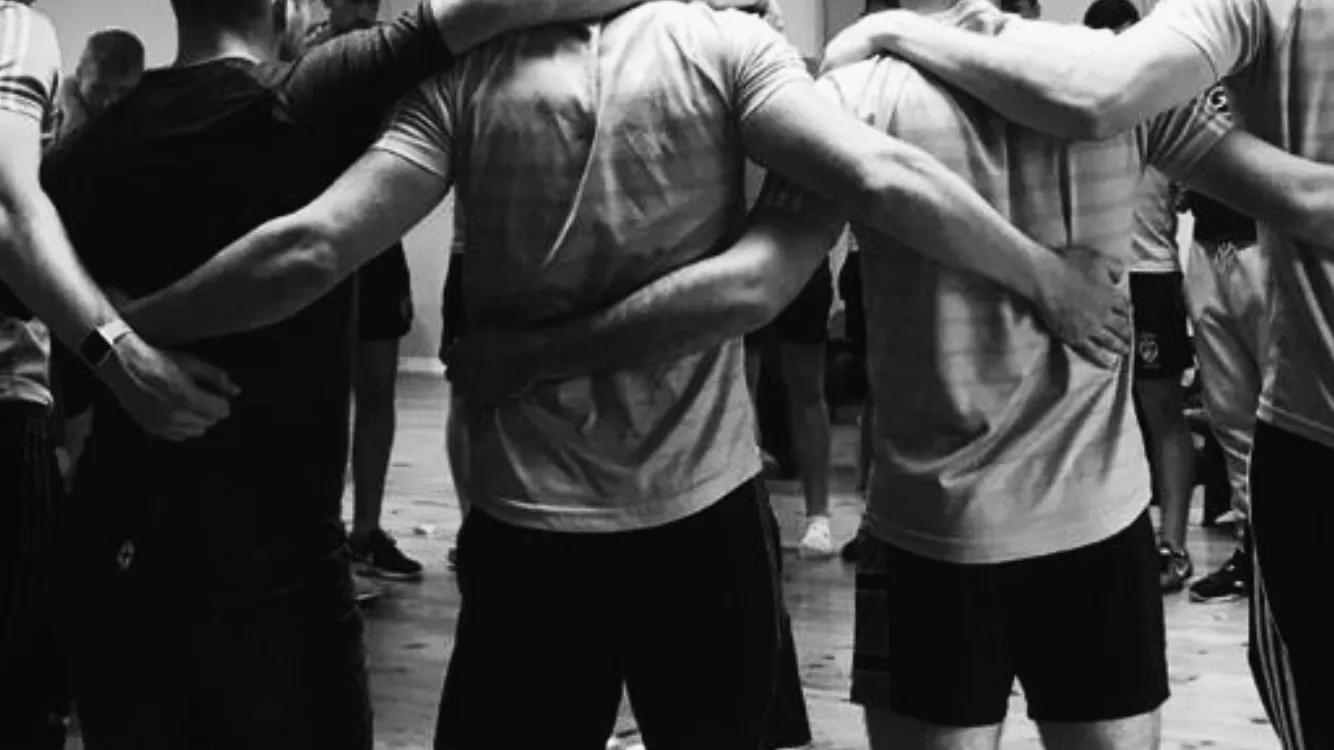Healthy Climates for Teen Teams

For 8 years I worked with the stellar Soar Foundation (www.soar.ie) facilitating conversations with teenagers nationwide. Each workshop gave me a lesson on the human condition, and what young people need to thrive psychologically, mentally, and emotionally. For teenagers to get value, they must buy-in. To get buy-in, the conditions needed to be right. At one of my first workshops, I learned this the hard way. The group checked out in a few ways - yawning, scrolling timelines, throwing schoolbags, calling me a 'Cork Rat', leaving the room, and good old silence......Over time, I discovered some necessary ingredients for creating the 'right conditions', so that teenagers engage wholeheartedly, dial into the job at hand, support eachother, and even 'shhhhh' the distractors.
At the 2022 GAA Coaching Conference, coaches, mentors, volunteers from around Ireland came to learn ways to better develop their young people. I shared with them some of the nuggets that teenagers taught me over the years, focusing on creating healthy, developmental environments *much of which these coaches are already doing so well.
"For teenagers to get value, they must buy-in. To get buy-in, the conditions needed to be right."
BELONGING

As relational beings, a sense of belonging is key to our well-being and to our willingness to cooperate with others. This core need can be intense in teenage years. Young people scan their groups for signals from peers which communicate 'you belong here'. Eye contact, open body language, 'hello', 'thank you', and using people's names go a long way in making people seen, heard, and valued. Each time teenagers recognise a cue, it's like switching a light on in their minds. Being intentional about this in daily interactions, coaches can keep their team environment illuminated for all to benefit from.
"Each time teenagers feel belonging, it's like a light being switched on in their minds."
RESPONSIBILITY

For teenagers, it can feel like adults are always driving the bus, and they're the passengers along for the ride (no I'm not saying teenagers should/can drive the bus). When this becomes the norm, teenagers can become passive, understimulated, and plain bored.
Teenagers want a challenge. They want to feel empowered. They want a chance to demonstrate their creativity, competence, and value. An idea is to 'give them the steering wheel' in the right context. Give them tasks and leadership roles. Get curious about their ideas and opinions. Involve them in meetings, events, decision-making. Watch them stand taller and grow into the size shoes you give them.
WHY

At times the adult-teenager interactions can be directive, and top-down. Young people can be left feeling bossed around or controlled, followed by the classic teenage 'sigh', 'urgh' or 'sooo unfair' (Kevin and Perry, 2000). To avoid this shutdown stage, coaches can ask themselves, 'why are you asking them to do this?' Usually, it is for their benefit, like their health and wellbeing or helping them realize their potential. Zoom out and help teenagers see this bigger picture. Remind them of your intentions behind drills, meetings, strategies, ideas, proposals. In the process, they'll likely feel more connected to you and the task in hand.
"Zoom out and help teenagers see this bigger picture. Remind them of your intentions..."
PSYCHOLOGICAL SAFETY

Teenage life is an experimental period. It's a time to test out different personas, hobbies, styles, haircuts, ways of expressing themselves both on and off the field. When these 'risks' are judged or punished, teenagers feel a diminished level of safety, and likely can become more anxious, and within themselves. When our risks are welcomed and encouraged, we experience increased psychological safety - and likely feel more relaxed and confident in our future efforts on and off the field. Coaches can set the tone here in their encouraging, non-judgemental interactions with young people.
CONNECTION

Over lockdown, many teenagers have been hearing the message that 'the world isn't safe'. Teens have been digitally connected, but lacking starved of the real stuff. Key developmental & relationship-building opportunities have been missed out on. As we re-emerge to post-covid life, coaches have the opportunity to 'refill the cups' by finding novel ways to connect beyond the playing field. You can be imaginative with this, games nights, quizzes, fundraisers, talent shows, sea swims, hikes, camping, etc. Even get their input on this. Time for teenagers to create some new memories together.
"When they see that you the adult, are imperfect, on a journey, and trying your best - they'll connect more with this than with perfection."
ROLE MODELLING

Teenagers are impressionable. They are watching the 'elders' to gauge the rules of the environment. Coaches have the responsibility and privilege to show the way. If you want the environment to be one of respect, integrity, support, fun, care - then you model these in your interactions with them, your backroom team, referees, supporters. This isn't to say you must be perfect. In fact, when they see that you the adult, are imperfect, on a journey, and trying your best - they'll connect more with this than with perfection.
---------------------------------------------------------------------------------------------------------------
Thanks again to the GAA for inviting me down. Respect to all organisers and coaches for the great work being done.
---------------------------------------------------------------------------------------------------------------
Prep Time

Talk Time

Rory Dwyer, a 3rd-year psychology student on work placement from DCU. A true gent and a wise owl.

---------------------------------------------------------------------------------------------------------------
Helpful resources for coaching teenage teams:
- Teenagers Book of Life, by Tony Griffin
- Belonging, by Owen Eastwood
- Culture Code, by Daniel Coyle


Align & Flow



